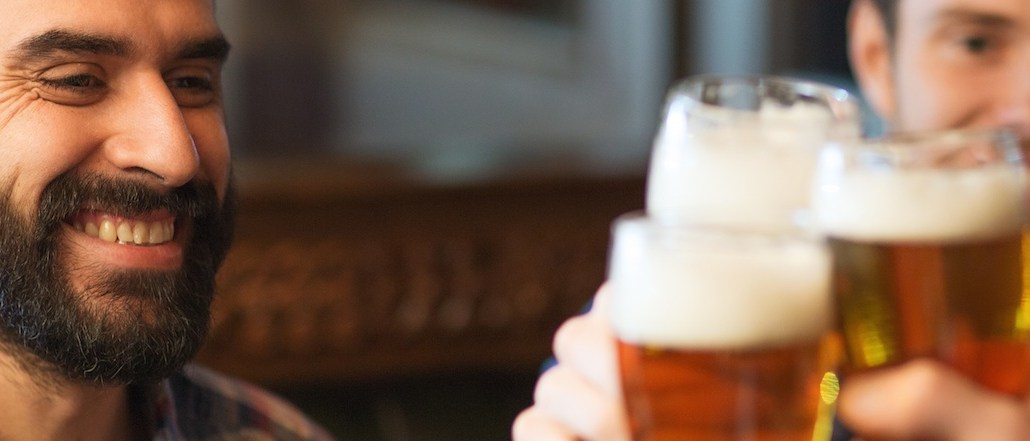Secure your place at the Digiday Media Buying Summit in Nashville, March 2-4

This article has been revised to reflect the following corrections: Unilad.co.uk is a website aimed at British college students that began in 2014, not 2010 as originally written. It is not affiliated with Unilad.com, the site that was blasted for its content between 2010 and 2012. Unilad.co.uk is owned and operated by a completely separate team. Digiday regrets the errors.
Bro media is big, and it’s taking over Facebook.
Take Unilad.co.uk, a humor-focused media company for British college students (tagline: “Procrastinate better”), which appears to have cracked the Facebook video code. The publication, which began life in 2014 as a typical lad publication, has found second life thanks to the power of Facebook. It has risen to become one of the top five video producers on Facebook, amassing 416 million views in June alone, according to Tubular Labs. Unilad has 6.7 million Facebook fans, too.
The bro-focused site pushes out approximately 50 videos a week, ranging from the offbeat like “The World Is Going Mad For ‘Twizzerling” and serious news videos such as “Cop Filmed Pepper Spraying Attendees Of Police Violence Protest.”
“Video is our main driver and we have found that Facebook has been more free and flexible with letting video content going viral ” said co-founder Liam Harrington. “We’ve latched on, and there’s no problem in doing that. Facebook has housed us really well.”
An eight-member video team works in Manchester. It takes a multifaceted approach to video that sees about 20 percent created originally — funny man-on-the-street fare, typically — while the rest is split between licensed video from the likes of Jukin Media and community-produced fare.
“People love us posting their videos because they get a chance to go viral,” Harrington said. “Doing community management and utilizing those fans consistently is what has set us apart.”
The strategy is reminiscent of competitor Lad Bible, with its own bro-focus and reliance on fans to create and promote video, but it is not stopping Unilad from expanding on its own video production capabilities. It has started experimenting with original videos, such as one testing people’s general knowledge on the streets with its recurring “We asked people ‘easy’ questions” feature, and is also taking a page from Vice’s book and plans to make mini-documentaries on newsworthy topics such as the legalization of cannabis in the U.K.
We asked people some ‘easy’ questions and got some interesting answers…
Posted by UNILAD on Sunday, July 19, 2015
“Just because someone likes a funny video, it doesn’t mean they won’t like a video about a serious piece of news,” said Unilad’s CEO, John Quinlan. “We want to represent a whole generation of people who don’t watch traditional TV.”
The Unilad name, however, has a checkered past. Between 2010 and 2012, Unilad.com — not affiliated with Unilad.co.uk — was condemned for condoning rape and sexual violence. The current team, headed by Quinlan, was not involved and the company is owned and operated by a completely new team. Today, according to Quinlan, approximately 120 million of the 250 million people it now reaches weekly are female. “No one really cares what we’re called; they just love our content,” he said. “Best content wins.”
Its large, centralized millennial viewership has also made Unilad attractive to brands. Take Warner Bros., which partnered with it for an “Entourage” campaign. The video, titled “Americans Guess What British Slang Words Mean,” has been viewed over 9 million times and has generated over 65 million impressions. “We always tell brands that our audience love being advertised to as long as it’s done our way,” said Quinlan.
Going forward, Unilad’s focus will be not only on good content and more partnerships, but also to figure out its video strategy across other platforms, as it doesn’t want to put all its eggs in one basket. Facebook has been known to tweak its algorithm to devastating effects in the past and still doesn’t monetize for almost everyone except for a select few publishers. Unilad has started dabbling in Snapchat and Instagram, and will not be opposed to directly licensing its video content to internet streaming sites like Netflix.
“It’s really about being the best and the quickest, and taking calculated risks,” said Harrington. “I think we understand social better than anyone else.”
More in Media

Media Briefing: Turning scraped content into paid assets — Amazon and Microsoft build AI marketplaces
Amazon plans an AI content marketplace to join Microsoft’s efforts and pay publishers — but it relies on AI com stop scraping for free.

Overheard at the Digiday AI Marketing Strategies event
Marketers, brands, and tech companies chat in-person at Digiday’s AI Marketing Strategies event about internal friction, how best to use AI tools, and more.

Digiday+ Research: Dow Jones, Business Insider and other publishers on AI-driven search
This report explores how publishers are navigating search as AI reshapes how people access information and how publishers monetize content.





